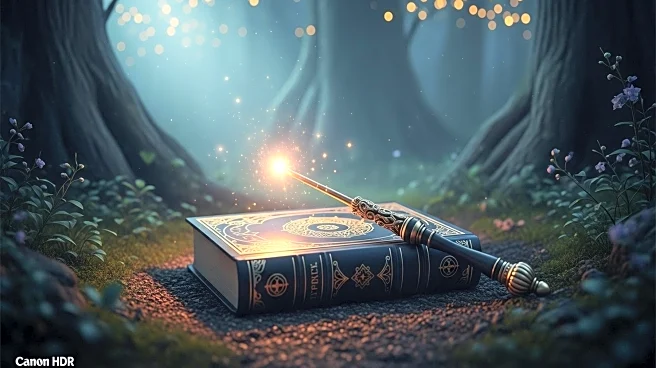What's Happening?
Chris Columbus, the original director of the Harry Potter films, has announced that a reunion of the original cast for a new adaptation is 'impossible' due to the controversy surrounding J.K. Rowling's views on transgender issues. Columbus, who had considered adapting the Broadway play 'Harry Potter and the Cursed Child,' stated that the political complexities and differing opinions among the cast make such a reunion unfeasible. Despite maintaining close contact with cast members like Daniel Radcliffe, Columbus has not spoken to Rowling in over a decade. The play, set years after the original series, follows Harry Potter's son in Slytherin House. Columbus expressed difficulty imagining new actors in roles originally played by Alan Rickman, Maggie Smith, and Robbie Coltrane.
Why It's Important?
The inability to reunite the original Harry Potter cast highlights the ongoing impact of J.K. Rowling's controversial statements on transgender issues. This situation underscores the challenges faced by filmmakers and studios in navigating political and social controversies. The decision affects fans and stakeholders in the entertainment industry, as the Harry Potter franchise remains a significant cultural and economic entity. Columbus's comments reflect broader industry concerns about separating art from the artist, which can influence casting decisions and adaptations of popular works.
What's Next?
While Columbus has ruled out a reunion, the Harry Potter franchise continues to evolve with new adaptations by HBO and Warner Bros. Television. These adaptations may face scrutiny from fans and critics regarding casting choices and adherence to the original material. The industry will likely continue to grapple with the implications of Rowling's views, affecting future projects and collaborations. Stakeholders may need to address fan expectations and the franchise's legacy while navigating the complexities of public opinion.
Beyond the Headlines
The situation raises ethical questions about the relationship between creators and their work, particularly when personal views conflict with public sentiment. It also highlights the cultural significance of the Harry Potter series and its impact on discussions about diversity and inclusion. The controversy may influence how future adaptations are approached, potentially leading to more inclusive storytelling and casting practices.








